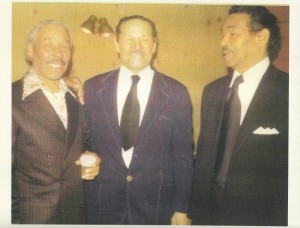
The first Memorial Day or Decoration Day (decorating soldiers’ graves with flowers) has its origins with African American former slaves in Low Country, South Carolina. Thank you South Carolina Sisters and Brothers! Like most Civil War topics, this holiday has a lot to do with memories lost and whitewashed. Even on mainstream websites, false credit is given to women’s history—that Memorial Day was somehow an idea created by a military officer’s wife.
But thanks to Yale professor David W. Blight who authored American Oracle: Civil War in the Civil Rights Era, and NY Times article, we are able to verify what genealogists and African American oral historians have been whispering for eons about the true origins of Memorial Day.
Memorial Day (originally called Decoration Day) is a day of remembrance for those who have died in service to the United States.
Learn about the African American origins of this American holiday according to a New York Times article excerpt by Professor David W. Blight:

“The procession was led by 3,000 black schoolchildren carrying armloads of roses and singing the Union marching song “John Brown’s Body.” Several hundred black women followed with baskets of flowers, wreaths and crosses. Then came black men marching in cadence, followed by contingents of Union infantrymen. Within the cemetery enclosure a black children’s choir sang “We’ll Rally Around the Flag,” the “Star-Spangled Banner” and spirituals before a series of black ministers read from the Bible.
After the dedication the crowd dispersed into the infield and did what many of us do on Memorial Day: enjoyed picnics, listened to speeches and watched soldiers drill. Among the full brigade of Union infantrymen participating were the famous 54th Massachusetts and the 34th and 104th United States Colored Troops, who performed a special double-columned march around the gravesite.
The war was over, and Memorial Day had been founded by African-Americans in a ritual of remembrance and consecration. The war, they had boldly announced, had been about the triumph of their emancipation over a slaveholders’ republic. They were themselves the true patriots.
Despite the size and some newspaper coverage of the event, its memory was suppressed by white Charlestonians in favor of their own version of the day. From 1876 on, after white Democrats took back control of South Carolina politics and the Lost Cause defined public memory and race relations, the day’s racecourse origin vanished.
Indeed, 51 years later, the president of the Ladies’ Memorial Association of Charleston received an inquiry from a United Daughters of the Confederacy official in New Orleans asking if it was true that blacks had engaged in such a burial rite in 1865; the story had apparently migrated westward in community memory. Mrs. S. C. Beckwith, leader of the association, responded tersely, “I regret that I was unable to gather any official information in answer to this.”
Here is the link of the full story:
. Forgetting Why We Remember – NYTimes.com
www.nytimes.com/2011/05/30/opinion/30blight.html?pagewanted=all